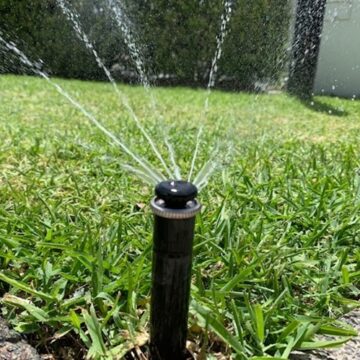Introduction
Before the winter season, most people are tempted to just shut their garden fence and allow nature to do its thing. However, if you put in a bit of effort, you can save a lot of grueling manual labor during the busy spring season. Otherwise, you can allow professionals to do the job by searching for “landscape companies near me”. Here’s how you can get your garden ready for winter:
The Steps
- Clean off rotting plants – Old plants left on the soil can rot and look very untidy. Apart from that they also invite pests, funguses, and all sorts of plant diseases. Moreover, the pests feeding on your plants during the summer season may lay eggs on them. If you don’t remove them before winter, you may invite fresh infestation during the spring season. Even if you don’t remove them from the ground, you can at least use them for making compost that will be ready by the next season. If the plants are disease and pest-free, tilling them into the ground can add rich organic matter that makes springtime less tedious.
- Remove weeds – A gardener has to confront invading weeds every season. There’s no way you didn’t come across bindweed or other types of weeds that encroach the border and slowly plan to take over the garden. However, with a bit of preparation before winter, you can minimize their impact on your garden. Dig up the weeds from the soil and use them in the compost bin. However, if the weed is too invasive it may survive the heat of the compost bin. You need to throw them in the trash or burn them in a pile. Unfortunately, there is no way of getting rid of extremely invasive weed species other than burning them or completely getting rid of them. Don’t give in to the temptation of using their organic matter in some other part of your yard or garden.
- Prepare the soil for springtime – Preparing the soil is an activity that most people reserve for spring. However, the fall season is a great time and arguably more ideal for those preparations. When you add compost, bone meal, manure, kelp, or other soil-enriching substances during the fall season, they have many months to break down and pump your soil with nutrients and encourage beneficial microbial activity. Moreover, in spring you have to wait for the soil to dry out before working on it. Doing it in the fall season doesn’t just save you time and effort, but also moves up planting time. Soil drainage is also significantly improved when you till the soil before winter. Once you’ve added nutrients and tilled your soil, you can cover it with a protective sheet so that the amendments aren’t washed away. When spring hits and the snow melts, you can remove the cover and get busy.
- Plant cover crops – If your climate is suitable for it, you can enrich the soil in other ways, one of which includes planting cover crops. Crops like clover, vetch, rye, or barley are good cover crops that are perfect for sowing during early winter. Winter usually has the soil unattended since most crops can’t tolerate the harsh weather conditions. However, cover crops are easy to grow during such times and their roots bind the soil to prevent erosion. They can also increase the organic matter in the soil. Some cover crops like peas and clover can even boost the nitrogen levels in the soil that can benefit your spring sowed plants.
- Trimming and pruning – The fall season is also perfect for some trimming and pruning. Take a look at the perennials in your garden and figure out if they have overgrown branches that need to be trimmed. Trimming and pruning aren’t just for aesthetics. They can also benefit the plants. For instance, plants like raspberry and fennel get nourishment from pruning if it’s timed right. Other plants like blueberries are better off pruned during the spring season for protection from diseases. If you have a herb garden with plants like sage, rosemary, asparagus, thyme, and rhubarb, you should prune them before winter.
- Harvest your compost and restock the bin – The summer heat is over and that also gives the microbes a break from biological activity. However, that doesn’t mean you should ignore your compost bin. By now the compost bin would have the rich black natural fertilizer finished and ready for use. You can use it to prepare the garden beds and save yourself from excessive labor during the spring season. It will nourish your soil and keep it in optimum condition for the spring season. Moreover, after you clean the compost bin, it’s ready to take in new organic matter and start the composting process all over again. Don’t worry about the falling temperatures. It’s nothing that a little bit of insulation can’t fix to extend the microbial activity for a bit longer. For maximum effectiveness stuff the bin with a balance of green matter like kitchen scraps, rotten veggies, weeds, and brown matter like autumn leaves, sawdust, straw, and more.
- Don’t ignore mulching – Most people ignore mulching during the winter season since they don’t think it is one of the least active seasons of the year. If you do that you miss out on the numerous benefits. Apart from the benefits of summer mulching like protection from erosion, inhibition of weeds, and restriction of water loss, mulching can be good in many other ways during the cold season. It can protect the root vegetables that grow during the winter and protects your crops from frost.
Conclusion
By now it must be evident that you can do plenty of things to prepare your garden for winter. It saves you a lot of time during the busy seasons and adds numerous other benefits. If the task seems too demanding, you can hire a pro to do the job for you by searching for “landscape companies near me”.
















